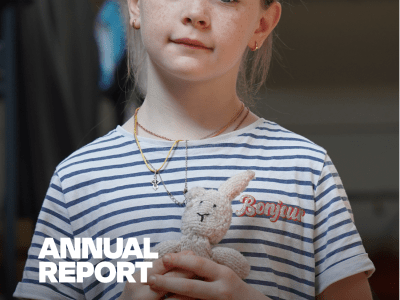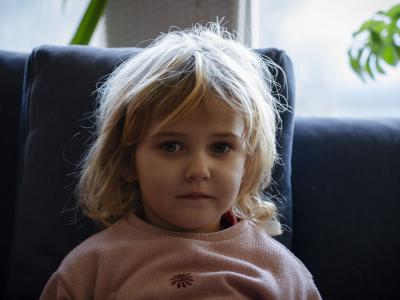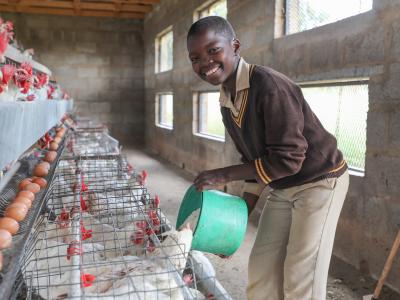article / February 20, 2026
Soil Restoration Strengthens Food Security in Northern Mozambique
Discover how World Vision and Farmer Managed Natural Regeneration (FMNR) are transforming lifeless soil into thriving pineapple harvests in Memba, Mozambique. Learn how sustainable farming techniques are strengthening food security and climate resilience for families facing extreme weather
publication / February 18, 2026
Annual Report 2025: Standing With Children Through Four Years of War in Ukraine
As the Ukraine Crisis Response enters its fifth year, the war continues to devastate millions of lives, particularly children. Over the past four years, World Vision Ukraine has reached more than 2.3 million people, including over 1 million children, providing critical support in education, mental health, protection, cash assistance, livelihoods, basic needs services and winterisation.
press release / February 19, 2026
Four Years On: 1 in 3 Ukrainian Children Now in Need of Humanitarian Assistance
Four years into the war in Ukraine, children remain at the centre of a deepening protection crisis. Today, one in three children in Ukraine requires humanitarian assistance, as sustained exposure to violence, displacement, family separation and the erosion of essential services continue to shape their daily lives.
article / February 19, 2026
World Vision’s Integrated Programs Transform Learning, Health, and Hope for 1,052 Learners in Pitseng
World Vision’s integrated programs transformed a primary school in Pitseng, providing clean water, safe toilets, new classrooms, school gardens, and poultry projects, improving learning, hygiene, and student wellbeing
article / February 12, 2026
A Ray of Hope in Torodi: The Story of Moussa Birgui
In Torodi, a region marked by insecurity and social vulnerability, Moussa Birgui’s story illustrates the hardships of forced displacement and the impact of humanitarian aid. In 2023, Moussa, 61, and his family of 22 fled Wasseybangou after violent attacks, burned schools, abductions, and threats of mass killings. Arriving in Torodi, they were welcomed with a house and initial support for internally displaced persons, but aid dwindled over time. Relying on a small, low-yield field, Moussa struggled to feed his family.
In 2025, World Vision’s Integrated Emergency & Recovery Assistance project provided food kits with rice, pasta, beans, oil, salt, and sugar for three months. They also received improved seeds and farming tools, giving hope for a better harvest. The intervention not only alleviated immediate needs but restored dignity, resilience, and optimism. Moussa expresses heartfelt gratitude: in the midst of exile, humanitarian support has become a vital source of hope for his family and others facing similar challenges.
article / February 19, 2026
Celebrating Inclusion, Dignity, and Hope, Night to Shine 2026
Beit Cure Children's Hospital in Malawi invites World Vision to a Night to Shine event
article / February 20, 2026
ENOUGH food for every child: How World Vision is protecting children like Karabo
No child should face hunger. Karabo’s story shows how World Vision’s ENOUGH Campaign is protecting vulnerable families and restoring childhood hope.
article / February 19, 2026
From Fear to Dignity: How Access to Clean Water and Safe Sanitation Transformed Senate’s Life
Access to clean water and safe sanitation through World Vision’s WASH program transformed Senate’s health, safety, and everyday wellbeing.
article / February 9, 2026
A Ray of Hope for Children at Kabiza Camp
World Vision with support from Standard Bank Malawi, supports flood victims in Nkhotakota district
article / February 9, 2026
A Champion Mother Bringing Healing and Hope in Nduta Refugee Camp
A powerful story of a Champion Mother in Nduta Refugee Camp whose courage and care helped save a malnourished child’s life through World Vision support.




